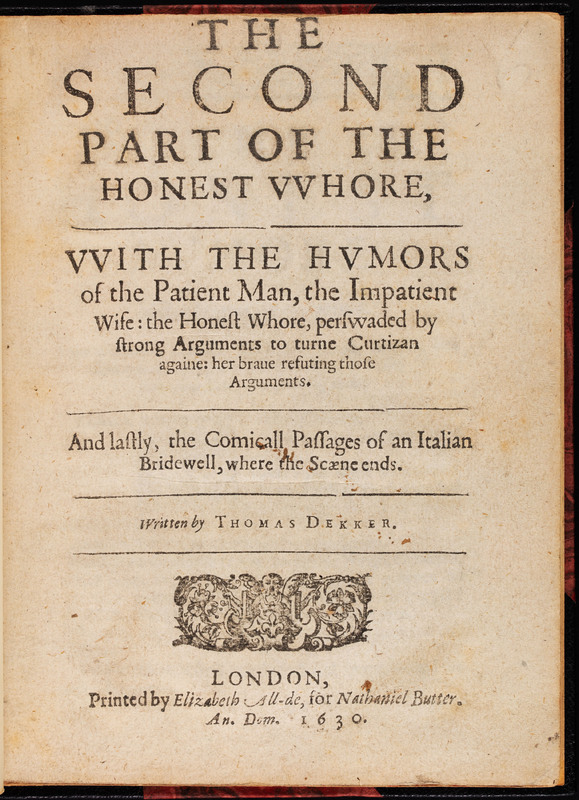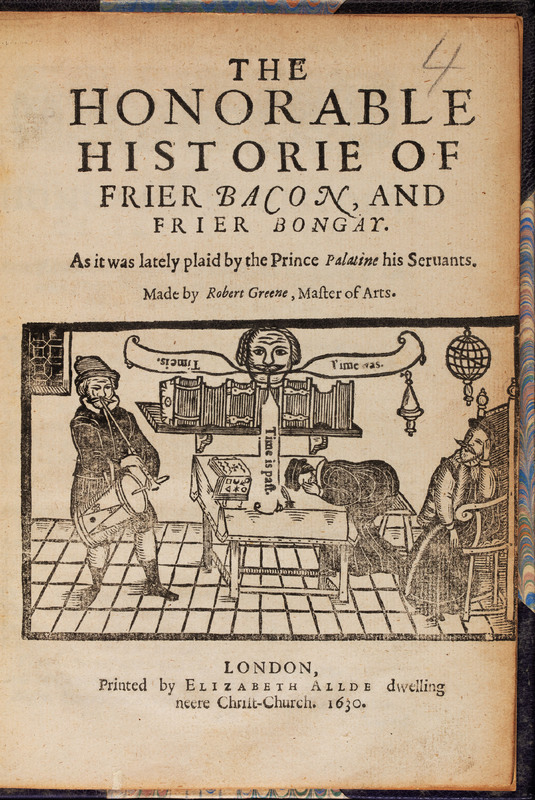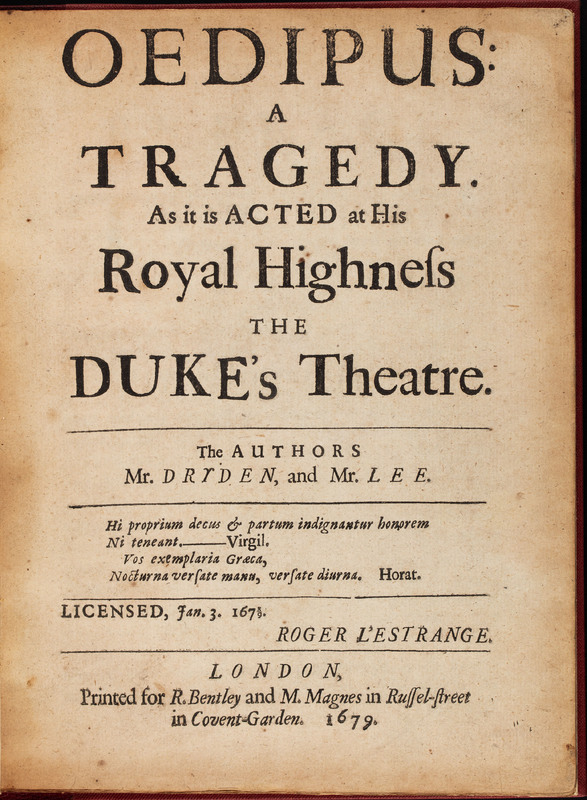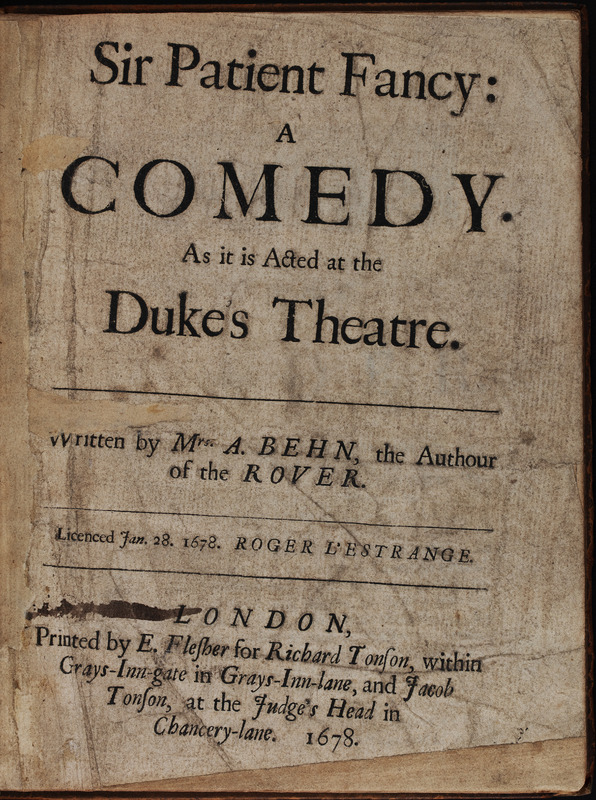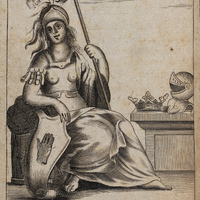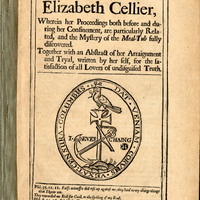Exhibit Contents
Popular Literature
These books are representative of items printed for "popular" consumption, the most common being poetry and plays by classical and contemporary authors.
The basis of this moral play is that a reformed courtesan refuses to return to her former profession, despite temptation. The printer's device on the title page is likely that of Elizabeth Allde's late husband Edward (fl. 1584-1628), a trade printer for several publishers. Elizabeth (fl. 1628-40) continued the business after her husbands' death, printing ballads and popular plays as a trade printer. Nathaniel Butter (fl. 1605-64) was a bookseller, who published popular literature, and in 1639 focused exclusively on news sheets. Butters' play copyrights were given to Miles Flesher.
An edition of a contemporary play printed by Elizabeth Allde, "As it was lately plaid by the Prince Palatine his Seruants." The woodcut on the title page reads "Time is/Time was/Time is past," showing a musician, a scholar, and a third figure, possibly an astronomer. Like her late husband, Elizabeth Allde favored a quarto format, instead of octavos.
Richard Bentley (fl. 1675-97) was a well-known publisher of plays, novels, and romances. Several members of the Magnes family were his partners. Mary Magnes (fl. 1677-90?) is likely the widow of James Magnes (fl. 1660-79) who had been the senior partner in the publishing firm with Bentley.
Aphra Behn (1640-1689) was one of the earliest British female dramatists and novelists to become popular. Before becoming a writer, she served the court of Charles II for a time as a spy in the Netherlands, where her work was disregarded. She was buried in Westminster Abbey. Elizabeth Flesher printed this volume for the Tonsons, who were printers and booksellers involved in the publication of important literary milestones such as Paradise Lost, and works by authors such as Dryden, Addison, Steele, and Pope. While this volume is mentioned in Plomer as one of Richard Tonson's "milestones," Elizabeth Flesher is never mentioned as being involved.
Anne Maxwell (fl. 1665-75) was the widow of David Maxwell (fl. 1659-65). She inherited two presses, three compositors, and three pressmen from her husband. Margaret Cavendish was a maid of honour to Henrietta Maria, and upon her marriage to the duke, William, devoted her life -and that of her maids, required to be ready to take down her ideas-to writing. She is most famous for her Life of William Cavendish, published by Anne Maxwell in 1667.
